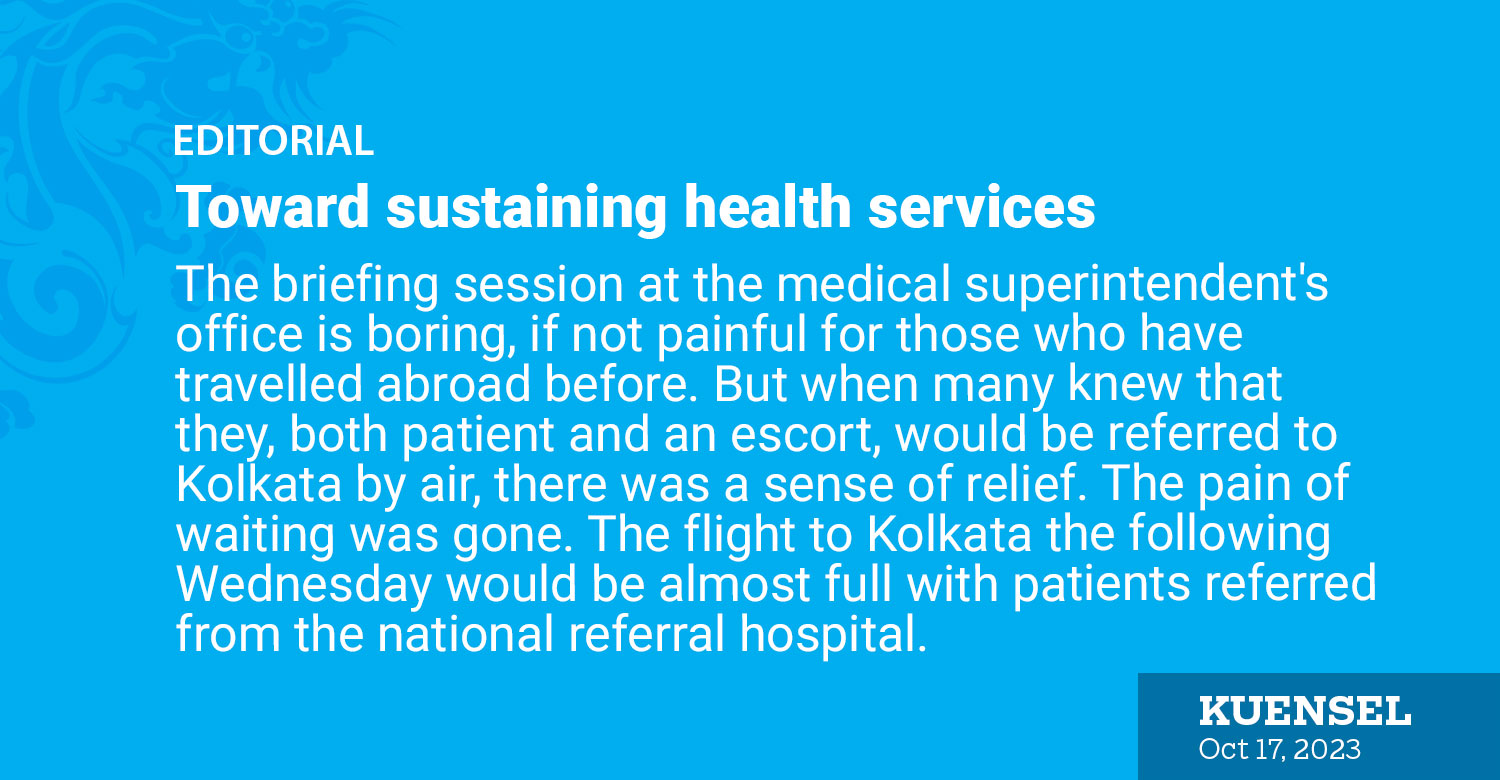The briefing session at the medical superintendent’s office is boring, if not painful for those who have travelled abroad before. But when many knew that they, both patient and an escort, would be referred to Kolkata by air, there was a sense of relief. The pain of waiting was gone. The flight to Kolkata the following Wednesday would be almost full with patients referred from the national referral hospital. They will be picked up from the airport and dropped off at numerous hospitals by liaison officers who were briefed in advance of their arrival.
As the escorts leave the congested office with details and assurance, there is a sense of gratitude. Referral to Kolkata or New Delhi is expensive, often beyond the reach of a significant segment of the population. While in India, their primary complaints centre on the heat and homesickness. Not many feel the sense of indebtedness to the government and our successive monarchs, who have consistently championed free healthcare, extending beyond basic health services
This situation provides an insightful backdrop for our discussion of the free healthcare system, especially in terms of its sustainability and the financial burden it places on the government. From the perspective of healthcare providers and policymakers, charging for health services, including expensive referrals, is not even considered. However, when the national referral hospital revised its consultation fees, the reactions were less than encouraging.
The highest consultation fee, Nu 5,000, is intended for executives, those who possess the luxury and financial resources. Other essential diagnostic and treatment services are as affordable as the daily Doma Khamto one might consume. For example, an X-ray film costs only Nu 250. Both the hospital management and the government have faced significant criticism regarding these revised charges, with some even politicising the decision.
What the hospital management must avoid is succumbing to pressure. We had been discussing that the health system should be sustainable in the long term. This was the vision and the hope two decades ago. Today, we are still relying on absolute free service. It is time we paid for some health facilities. Basic healthcare will still remain free. It is the off-hour consultations and the other facilities which the hospital is trying to cater to despite immense pressure on resources, especially human resources.
When we were building basic health infrastructure, we received assistance from donors. Basic healthcare infrastructures now span from Merak to Dorokha, or from Bangtar to Laya. The pertinent question is, how long can we remain dependent? Even our development partners and donors are beginning to wonder, if not insist, why we don’t charge for some healthcare services.
This approach makes sense as more and more Bhutanese are opting for medical tourism or self-referring to private and expensive hospitals in the region. For some, it’s a matter of social status. What was once a necessity in the past has now become a luxury. There are Bhutanese who still find it difficult to access the national referral hospital, while others travel to Bangkok or Delhi for their annual health check-ups. It’s high time that we accepted, if not enforced, payments for certain basic services within the country.
Many of us tend to take free services, including medicines, for granted. This is evident in the way we often fail to complete the full course of prescribed antibiotics. We will take our pills prescribed to be taken Droba, Nima, and Cheru, if we feel the pinch. Not many do so. All of us can pay Nu 100 for a week-long antibiotic course, for instance.


